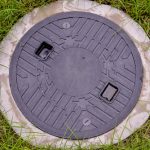 8 Most Common Things People Don’t Know About Their Septic System
8 Most Common Things People Don’t Know About Their Septic System
Septic systems play a crucial role in managing wastewater in areas without access to municipal sewer systems. Still, many homeowners don’t understand how their septic systems work and often neglect essential maintenance practices, leading to costly repairs. In this post, we’ll discuss the eight most common things people don’t know about their septic systems, helping you to understand how to keep your system working effectively and avoid potentially disastrous consequences.
1. Septic Systems Need Regular Maintenance
Septic systems require regular maintenance to work correctly. Homeowners should schedule regular inspections and pumping every three to five years, depending on the size of the system and the number of people in the household. Neglecting your septic system can cause major problems, including sewage backups into your home.
2. Cleaners Can Affect Your System
Some household cleaners, including bleach, antibacterial soaps, and disinfectants, can disrupt the natural processes in your septic system. Avoid using harsh chemicals and cleaners and instead opt for environmentally friendly products. Consider installing a lint filter on your washing machine to reduce the amount of lint that enters the septic system.
3. Proper Disposal of Household Wastes is Critical
Septic systems rely on natural bacteria in the tank to break down organic waste. Homeowners should take care not to flush non-degradable items like sanitary napkins, paper towels, or baby wipes, down the toilet. These items can block the pipes and cause major problems for your septic system.
4. Water Usage Impacts Your System
Water conservation is critical for septic systems, as excess water can overload the system. Homeowners should spread out laundry and dishwashing over several days, install low-flow fixtures, and repair leaks promptly to minimize water usage.
5. Landscaping Choices Can Affect Your System
Planting trees and shrubs over the drainage field of your septic system can cause extensive root damage to the pipes, leading to expensive repairs. Homeowners should opt for grass or groundcover instead of planting trees, shrubs or other extensive root systems near the drainage field.
6. Heavy Vehicles can Damage Your Septic System
Vehicles, especially heavy ones, can damage the septic tank or fields. Homeowners should not park or drive vehicles over the septic system areas. Septic tanks and pipes can be crushed or damaged, causing significant problems that require urgent repairs.
7. The Age of Your System is Important
Septic systems have a lifespan of about 20 years. If your system is older than 20 years, you make want to have regular inspections to ensure that it is still functioning correctly. Homeowners should consider regular maintenance and repairs to keep their septic systems running effectively.
8. Soil Type Can Affect Your System
The type of soil plays a critical role in how a septic system functions. Clay soil, for example, absorbs water slowly, making it less effective for septic systems. Homeowners should consult with an expert to identify the best type of septic system that is compatible with their soil type.
Conclusion
A septic system is an essential component of every home without access to municipal sewer systems. Understanding how your system works and the potential problems that can arise help you to keep your system running effectively and address issues before they become too costly. Proper septic maintenance, conservation of water, and responsible waste disposal practices can help homeowners to avoid significant problems and keep their septic system working well for years to come. If in doubt, always consult an experienced septic professional who can provide guidance on the best practices for your specific needs.
